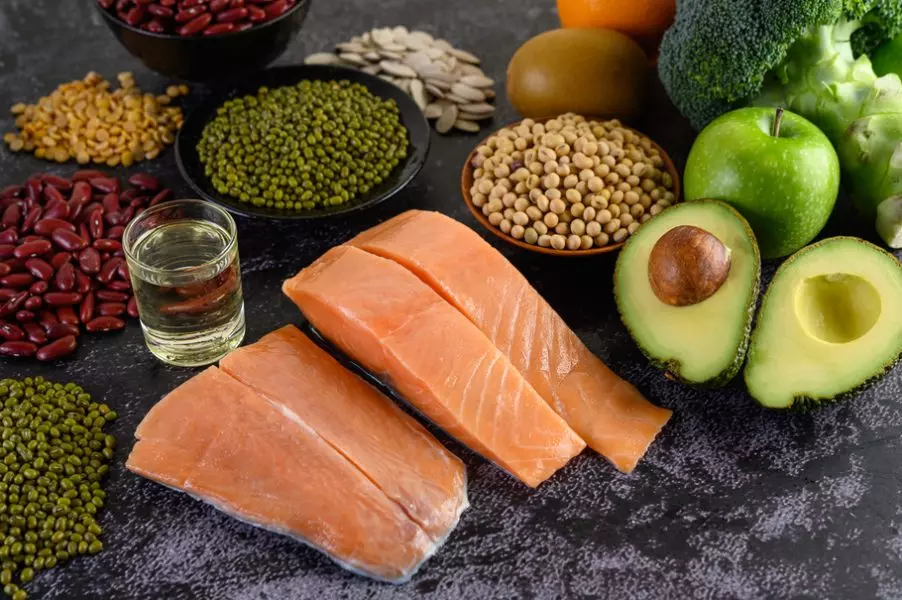
Indians deficient in iron, calcium, folate, says Lancet study; what foods to consume?
A Lancet study estimates Indians are deficient in micronutrients such as iron, calcium and folate. What kind of foods boost the levels of these essential nutrients?

An important study in The Lancet Global Health journal has estimated that people across all age groups in India, both men and women, are consuming inadequate amounts of micronutrients critical for health, including iron, calcium and folate.
The study is the first to provide estimates of insufficient consumption of 15 micronutrients across 185 countries, taken through diets without the use of supplements, according to an international team, including researchers from Harvard University, US.
The findings suggested that around the world, almost 70 per cent, or over five billion, people do not consume enough iodine, vitamin E, and calcium.
The researchers also found that within a country and an age group, more women were consuming inadequate amounts of iodine, vitamin B12 and iron, compared to men, whereas more men were consuming inadequate amounts of magnesium, vitamin B6, zinc and vitamin C, compared to women.
Iodine deficiency in Indian women
In India, while more women consumed insufficient amounts of iodine, compared to men, more men consumed inadequate amounts of zinc and magnesium, compared to women, the team found.
So, what are the good food sources of iodine for women? Besides seaweed, other options to get your iodine intake are fish and other seafood like oysters and eggs, say experts. Greek yogurt, salt, and cod are also good for iodine. Iodine is an essential micronutrient, which means that your body needs it to function properly.
Dairy products contain iodine. However, the amount of iodine in dairy products varies by whether the cows received iodine feed supplements.
Micronutrient deficiencies
While analyses over the past 10 years have looked at micronutrient deficiencies, the researchers said large data gaps remain for many micronutrients and population groups.
In this study, the authors used publicly available data from the Global Dietary Database to estimate the prevalence of insufficient nutrient intakes for 99.3 per cent of the global population. Meanwhile, according to the authors said that the Lancet study, their findings could be used by public health professionals to target populations in need of dietary interventions.
They added that since they did not account for intake of fortified foods or supplements, the results could possibly be an overestimate for some key nutrients in particular locations where people consume high amounts of fortified foods and supplements.
The Federal addresses the kind of foods required to boost deficient nutrients required for your body:
What foods are good to boost calcium levels?
Men and women aged 10-30 years were most prone to low-levels of calcium intake, especially in South Asia, South-east Asia and sub-Saharan Africa, pointed out the Lancet study. Calcium is an important mineral for healthy bones and teeth, and for muscle and nerve tissue. Here are some foods that are high in calcium:
Milk, cheese and other dairy foods top the list. Green leafy vegetables – such as karam saag, okra but not spinach (spinach does contain high levels of calcium but the body cannot digest it all) follow, along with soya drinks with added calcium. Bread and anything made with fortified flour and fish where you eat the bones – such as sardines and pilchards are also good for the bones.
According to health experts, adults aged 19 to 64 and over need 700mg of calcium a day. And, say that uou should be able to get all the calcium you need from your daily diet.
Foods rich in iron
Indians are also deficient in iron. Meats like liver, beef, chicken, pork, venison, lamb and seafood like oysters, mussels, shrimp, clams, sardines and mackerel, tuna, scallops are all good to hike up your iron levels.
Vegetables rich in iron are spinach, karam saag, beet greens (leaves and stems of beetroot plant), sweet potatoes, broccoli and string beans are rich in iron. While fruits high in iron are strawberries, watermelon, figs, dates, raisins, dried apricots and prunes.
Food rich in folate
Broccoli, brussels sprouts, leafy green vegetables, such as cabbage, karam saag, spring greens and spinach, peas, chickpeas and kidney beans, breakfast cereals fortified with folic acid are all good to strengthen your folate levels.
Foods rich in Vitamin E
Another essential vitamin that Indians commonly seem to lack is Vitamin E.
Almonds, sunflower seeds, pine nuts, avocado, peanut butter, fish and red bell peppers are full of vitamin E.
Foods rich in Vitamin B12
Vitamin B12 is one of the most vital nutrients our body needs for it helps boost metabolism and strengthen the immune system in our body.
Fish like tuna, salmon, sardines, trout and many more are good for vitamin B12. Milk is also considered to be an excellent source of Vitamin B12. This is why experts suggest daily consumption of milk to prevent vitamin B12 deficiency. In addition, it is also a reliable source of both calcium and vitamin D.
Another popular dairy product, yoghurt is also known to load you up with a good amount of vitamin B12. It is also enriched with calcium, vitamin D and other probiotics. Eggs are a great source of complete protein and vitamins - especially vitamin B12 and B2.

